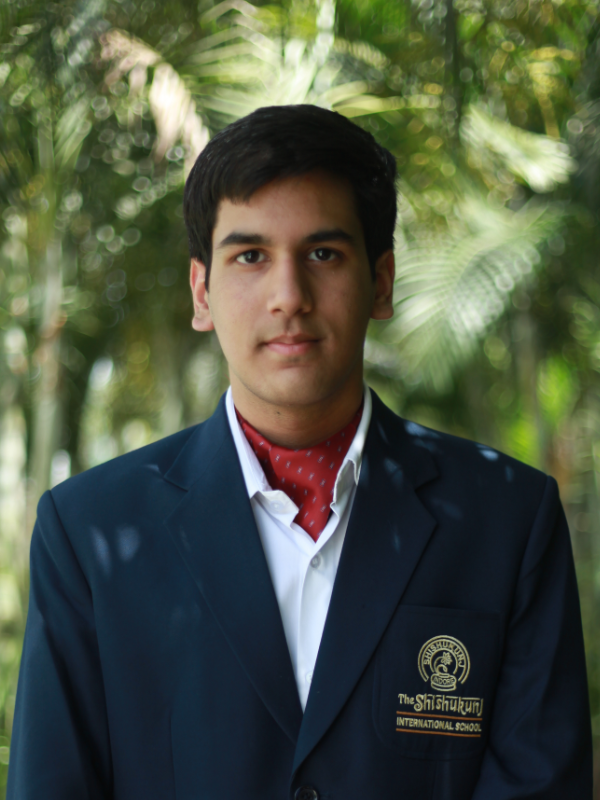Letter from the Chairperson
 Dear ministers,
Dear ministers,
It is my honor and privilege to welcome you to Shishukunj MUN 2018 as the Chairperson for the Political Cabinet of Argentina, 1999. I started my MUN career back in 2014 and haven’t looked back since. An avid reader and movie buff, I am an admirer of Paulo Coelho’s work and Star Wars obsessed. As a Humanities student, I have my own definition of things. My way of working with a committee involves my delegates having a lot of fun and receiving limitless exposure. So, buckle up!
The Political Cabinet of Argentina, 1999, is a specialized continuous crisis committee which comprises of ministers of the executive under the freshly elected president Fernando de la Rua, successor to the Argentine president, Carlos Menem. Rua won the presidency on December 10, 1999, after mistrust for Carlos Menem’s government caused turmoil among the public. Due to counterproductive economic reforms, Argentina, a previously prosperous nation, went down to suffer one of the worst economic depressions in history - the Argentine Economic Depression.
As the executive of the new president, you have inherited a country with a whiplashed economy and immense political instability. With this, I leave you the mammoth task of saving the Argentine economy, while ensuring political stability and democratic functioning within the new government.
It is you who has the burden to solve this complicated network of wide-ranging problems. I assure you that as decision makers of a country, you will learn so much more than what any other committee can possibly offer. A plethora of extremely critical, surprising and electrifying crises await. A nation in crisis needs you to act.
I am thrilled to be a Chairperson of such a dynamic and exciting meet. Can’t wait to see you guys!
May the force be with you, always.
Adviteeya Khujneri
Chairperson
Political Cabinet of Argentina, 1999
pca@shishukunjmun.com
Organ Description
The Political Cabinet of Argentina is a continuous-crisis committee established in the political backdrops and the socio-economic turmoil of the Argentine Economic Crisis (1998-2002). It is a specialized historic forum specifically crafted to instill an economistic and diplomatic sense of approach in a delegate. The date chosen for the meet is December 10, 1999. This was the day when Fernando de la Rua won the presidency and resolved to drive Argentina out of the crisis. Thus, as the executive of the new president, the cabinet is affected by past events, moving towards an uncertain future. The PCA comprises of selective ministers of the then Argentine executive who have a mandate concerning the agenda. Hence, the strength of the committee will be limited and exclusive. The cabinet will throughout the committee sessions remain skeptical to economic-political crises which carry a range of outcomes. Thus, this will surely be an enriching experience for the delegates and will inculcate in them a creative approach to problems. The PCA, thus, will be one of a kind in its functioning and procedures and enjoy a distinguished autonomy.
Agenda: Achieving Political and Economic Stability During the Argentine Economic Crisis
Argentina hailed as one of the most prosperous nations in the South and Latin American continent till the onset of the Argentine Economic Crisis in the late 1990s. In the year 2001, due to several macroeconomic reasons, the economy collapsed, and the growth rate slumped to the negatives. Argentina’s highest annual rate of inflation was a staggering 20,262% in the 12-month period ending in April 1990. That constituted to hyperinflation. To tackle this, the Argentinean peso was legally pegged to the dollar, on a one-to-one basis, in 1990. The government had hoped the move would end hyperinflation. However, this led to decreased exports and FDI as investors found their dollars to have a greater purchasing capacity in Brazil. The second crisis was high foreign and domestic debt due to the extensive borrowing done by the Carlos Menem government and consequential high interest rates. The 1990s privatization wave left hundreds unemployed and since many privatized companies were utilities, prices of phones and electricity skyrocketed. Hence, the recession began in 1997, the government’s tax revenues shrank, and the IMF refused to lend any more money until repayment of previous debts. These three crises converged to the point that people rushed to convert their pesos to dollars sparking a wave of uncertainty and anger throughout the country. In the light of being one of the worst economic crisis in the world, the conditions in which the agenda is set in portrays a tendency for a general lack of stability in the committee, therefore, adding to the need for diplomacy. Since you are the ministers of the executive, you enjoy the power to take decisions in your mandate, both individually and with a consensus. The committee is set to function on December 10, 1999, the day when the president of Argentina changed, displaying the height of political instability and urgency of this meet. Thus, it increases the urgency of probing an imminent economic crash in its early stages only.
